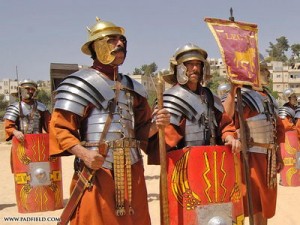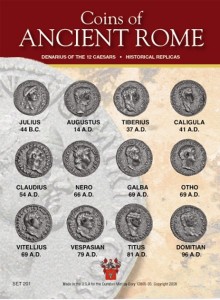 This is a repost but something we should all be reminded of:
This is a repost but something we should all be reminded of:
I loved reading Phil Johnson’s response to a comment at his Pyromaniacs blog site who wrote…
Your identity as a “Baptist”; your endless quotations from Charles Spurgeon; your faithful devotion to John MacArthur; and especially your willingness to call yourself a “Calvinist” are all huge red flags that tell me something is seriously wrong with your theology. Why do you teach a system of doctrine that is named after a mere man? Why are you following human teachers instead of going to the Bible alone? After all, 1 John 2:27 says, decease “The anointing which ye have received of him abideth in you, and ye need not that any man teach you.” We ought to go to Scripture alone to establish our doctrine! The truth is in God’s Holy word, not in any theological system or theology textbook developed by mere men. Isn’t that principle what the Reformation was originally about? Sola Scriptura? Didn’t even Calvin himself go to Scripture for the truth instead of reading other men? I believe that if Calvin himself wrote for this blog, he would point people to the truth in God’s Holy word, not to a theology developed by some other man.
Phil’s reply: You have seriously misunderstood sola Scriptura if you really imagine that it rules out human teachers or eliminates systematic theology. The Reformers (including Calvin) often cited the works of Augustine, Tertullian, Jerome, Cyprian, Ambrose, and others-ranging from the early church fathers through Aquinas. They didn’t follow any of them slavishly, of course, but they certainly took them seriously. Not one of the major Reformers would have tolerated the claim that because the Church Fathers were mere men they were therefore irrelevant or incapable of shedding any helpful light on tough theological questions.
Sola Scriptura means that Scripture alone is the final court of appeal in all matters of faith and practice. It is an affirmation that “the whole counsel of God, concerning all things necessary for his own glory, man’s salvation, faith, and life, is either expressly set down in scripture, or by good and necessary consequence may be deduced from scripture” and that “nothing at any time is to be added [to the Bible], whether by new revelations of the Spirit, or traditions of men.” It recognizes that there is ultimately no higher spiritual authority than God’s Word, so “the infallible rule of interpretation of Scripture is the Scripture itself; and therefore, when there is a question about the true and full sense of any Scripture . . . it must be searched and known by other places that speak more clearly.”
But none of that means we’re obliged to discard the wisdom of godly men from ages past and require each man to try to discern truth from scratch by reading nothing but Scripture by himself.
As for Calvin, he certainly did “point people to the truth in God’s Holy Word”-but one thing he did not do was steer people away from the important theologians of the past. In fact, Calvin’s works are filled with references to the Church Fathers-Augustine in particular. Calvin knew it was important to demonstrate that he was proposing nothing wholly novel and that his theology was in the doctrinal lineage of the greatest theologians of the church. He regarded himself as Augustinian, in precisely the same way many today think of themselves as “Calvinists.”
If Calvin wrote for this blog and someone responded to one of his posts by refusing to read what Augustine wrote, Calvin would probably write that person off as arrogant and unteachable.
Incidentally, 1 John 2:20, 27 is the apostle John’s response to an early outbreak of gnostic-flavored spiritual elitism. He was refuting some false teachers (he called them “antichrists”) who insisted that real truth is a deep secret, different from the apostolic message, into which people must be initiated by some anointed swami. The Holy Spirit indwells and anoints each believer, and He is the One who truly enlightens and enables us to understand truth. But He also gifts certain people with a particular ability to teach others (Romans 12:6-7; Ephesians 4:11). So while John was condemning the notion of enlightened masters in the style of Freemasonry and gnosticism, he was not making a blanket condemnation of teachers. He himself was a teacher.
Bonus (from Phil):
A follow-up message asks if I am suggesting it’s wrong for someone to abandon all books and human teachers and rely only on what he can glean from the Bible for himself. Answer: yes, I think that’s wrong because it’s arrogant and reflects a sinful kind of unteachability. This is my whole point: sola Scriptura doesn’t rule out the valid role of teaching in the church.
Furthermore, it is simply not the case that any common, unskilled, unschooled individual, sitting down with his Bible and no other tools, can expect to come to a full and mature understanding of Scripture without any help from godly teachers who understand some things better than he will ever get it on his own. Here’s Bernard Ramm’s famous response to the arrogance reflected in such a perversion of sola Scriptura:
It is often asserted by devout people that they can know the Bible completely without helps. They preface their interpretations with a remark like this: “Dear friends, I have read no man’s book. I have consulted no man-made commentaries. I have gone right to the Bible to see what it had to say for itself.” This sounds very spiritual, and usually is seconded with amens from the audience.
But is this the pathway of wisdom? Does any man have either the right or the learning to by-pass all the godly learning of the church? We think not.
First, although the claim to by-pass mere human books and go right to the Bible itself sounds devout and spiritual it is a veiled egotism. It is a subtle affirmation that a man can adequately know the Bible apart from the untiring, godly, consecrated scholarship of men like [Athanasius,] Calvin, Bengel, Alford, Lange, Ellicott, or Moule…
Secondly, such a claim is the old confusion of the inspiration of the Spirit with the illumination of the Spirit. The function of the Spirit is not to communicate new truth or to instruct in matters unknown, but to illuminate what is revealed in Scripture. Suppose we select a list of words from Isaiah and ask a man who claims he can by-pass the godly learning of Christian scholarship if he can out of his own soul or prayer give their meaning or significance: Tyre, Zidon, Chittim, Sihor, Moab, Mahershalalhashbas, Calno, Carchemish, Hamath, Aiath, Migron, Michmash, Geba, Anathoth, Laish, Nob, and Gallim. He will find the only light he can get on these words is from a commentary or a Bible dictionary. [from Bernard Ramm, Protestant Biblical Interpretation (Grand Rapids: Baker, 1970), pp. 17-18.]

 “Likewise it is false that the will, left to itself (apart from grace), can choose to come to Christ (John 6:65), for it is not free, but in bondage … for “the devil has blinded the minds of the unbelievers, to keep them from seeing the light of the gospel of the glory of Christ, who is the image of God” (2 Cor 4:4) … and has “taken them captive to do his will.”(2 Tim 2:26) … and intrinsically “the natural person does not accept the things of the Spirit of God, for they are folly to him, and he is not able to understand them because they are spiritually discerned.(1 Cor 2:14) because the mind set on the flesh is hostile toward God; for it does not subject itself to the law of God, for it is not even able to do so. (Rom 8:7) So there is “no one understands; no one seeks for God…. no not one. (Rom 3:11) “So then salvation “depends not on human will or exertion, but on God, who has mercy.” (Rom 9:16)”
“Likewise it is false that the will, left to itself (apart from grace), can choose to come to Christ (John 6:65), for it is not free, but in bondage … for “the devil has blinded the minds of the unbelievers, to keep them from seeing the light of the gospel of the glory of Christ, who is the image of God” (2 Cor 4:4) … and has “taken them captive to do his will.”(2 Tim 2:26) … and intrinsically “the natural person does not accept the things of the Spirit of God, for they are folly to him, and he is not able to understand them because they are spiritually discerned.(1 Cor 2:14) because the mind set on the flesh is hostile toward God; for it does not subject itself to the law of God, for it is not even able to do so. (Rom 8:7) So there is “no one understands; no one seeks for God…. no not one. (Rom 3:11) “So then salvation “depends not on human will or exertion, but on God, who has mercy.” (Rom 9:16)” In case you have not noticed, Christians are not in heaven yet. Though our place there is assured, in the meanwhile, God’s people live under the shadow of less than perfect Government.
In case you have not noticed, Christians are not in heaven yet. Though our place there is assured, in the meanwhile, God’s people live under the shadow of less than perfect Government. 1 Let every person be subject to the governing authorities. For there is no authority except from God, and those that exist have been instituted by God. 2 Therefore whoever resists the authorities resists what God has appointed, and those who resist will incur judgment. 3 For rulers are not a terror to good conduct, but to bad. Would you have no fear of the one who is in authority? Then do what is good, and you will receive his approval, 4 for he is God’s servant for your good. But if you do wrong, be afraid, for he does not bear the sword in vain. For he is the servant of God, an avenger who carries out God’s wrath on the wrongdoer. 5 Therefore one must be in subjection, not only to avoid God’s wrath but also for the sake of conscience. 6 For because of this you also pay taxes, for the authorities are ministers of God, attending to this very thing. 7 Pay to all what is owed to them: taxes to whom taxes are owed, revenue to whom revenue is owed, respect to whom respect is owed, honor to whom honor is owed.
1 Let every person be subject to the governing authorities. For there is no authority except from God, and those that exist have been instituted by God. 2 Therefore whoever resists the authorities resists what God has appointed, and those who resist will incur judgment. 3 For rulers are not a terror to good conduct, but to bad. Would you have no fear of the one who is in authority? Then do what is good, and you will receive his approval, 4 for he is God’s servant for your good. But if you do wrong, be afraid, for he does not bear the sword in vain. For he is the servant of God, an avenger who carries out God’s wrath on the wrongdoer. 5 Therefore one must be in subjection, not only to avoid God’s wrath but also for the sake of conscience. 6 For because of this you also pay taxes, for the authorities are ministers of God, attending to this very thing. 7 Pay to all what is owed to them: taxes to whom taxes are owed, revenue to whom revenue is owed, respect to whom respect is owed, honor to whom honor is owed.